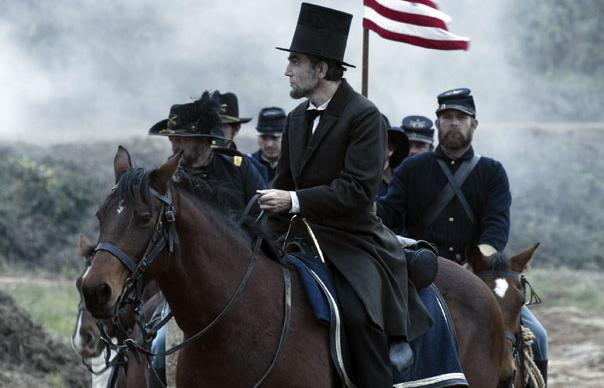Lincoln begins with the Battle of Jenkin’s Ferry in Arkansas in April, 1864, at the height of the American Civil War. It is a messy, close-quarter scrap in the mud between black and Confederate soldiers, with men shooting, stabbing, punching, flailing and gouging at each other. The rest of Spielbe...
Lincoln begins with the Battle of Jenkin’s Ferry in Arkansas in April, 1864, at the height of the American Civil War. It is a messy, close-quarter scrap in the mud between black and Confederate soldiers, with men shooting, stabbing, punching, flailing and gouging at each other. The rest of Spielberg’s film is about conflict, too, but of a less visceral kind: the constitutional battles Lincoln faces on screen, and the tussle off-camera between Spielberg’s ropey tendencies to mythologise and Tony Kushner’s scrupulous screenplay that strives for fact and precision.
Lincoln covers a three-month period from January 1865 to the president’s death in April, as the president fights to push through an amendment to the Constitution outlawing slavery. The vibe here is of an 19th century The West Wing: many scenes (handsomely framed by director of photography Janusz Kaminski) feature men with beards standing in drawing rooms discussing legislative prerogatives. Occasionally, hats are thrown in the air. The enemies come from many sides: the Confederates in the South, Democratic opposition in the House, even Lincoln’s fellow Republicans – chiefly, hardline abolitionist Thaddeus Stephens (a ripe Tommy Lee Jones).
Elsewhere, Spielberg casts cleverly – there is excellent work from David Strathairn as diligent Secretary of State William Steward, Sally Field, James Earl Haley, Jared Harris, John Hawks, Tim Blake Nelson and a rotund and bewhiskered James Spader. But Daniel Day-Lewis’ Lincoln is the biscuit. His Lincoln has a stooped, shuffling gait, his voice pitched high, hands like hams slapping down on his thighs. This is a man who can silence a room as he embarks on some meandering yarn, yet whose determination is absolute, whose backroom deals and schemes are razor sharp.
Kuschner – who worked with Spielberg on Munich – enjoys rolling around in the vernacular. Lincoln accuses his cabinet, “You grousle and heckle and dodge about like pettifogging Tammany Hall hucksters”, while Thaddeus Stephens lambasts the “mephitic fumes” of an opponent in the House. Although Kuschner sticks with the specifics of the era, it’s impossible not to notice that the “demented radicals” pushing through anti-slavery laws are Republican, while the Democrats are the bad guys. Critically, Kuschner keeps Spielberg’s tendency to mythologise in check on all but a few occasions – the first time we see Abe, he’s back-lit, listening to a pair of boys recite chunks of the Gettysburg Address to him, John Williams’ creaky score swelling in the background. Later, Lincoln is magically caught flickering in the flame of a candle. These moments aside, this is one of Spielberg’s great, grown-up piece of filmmaking – up there with Munich, Schindler’s List and Empire Of The Sun.
Michael Bonner



